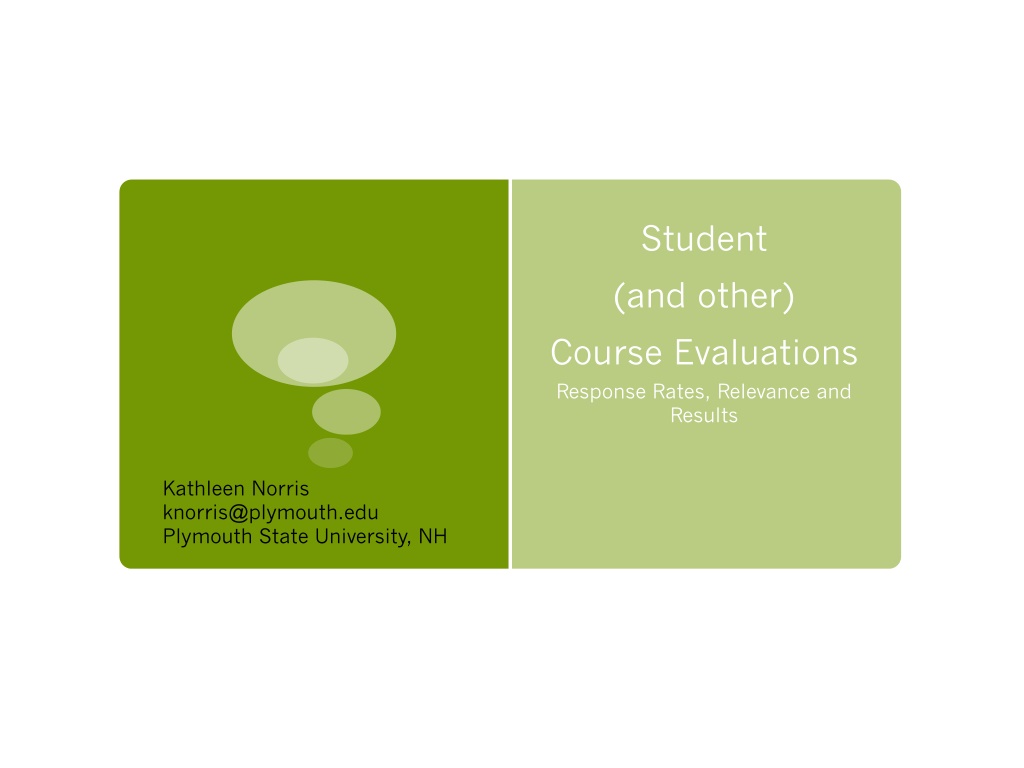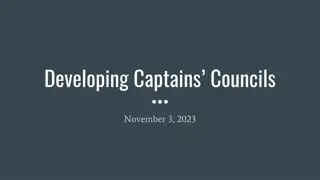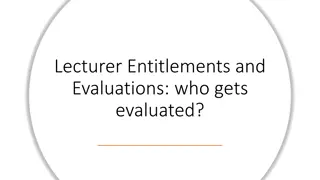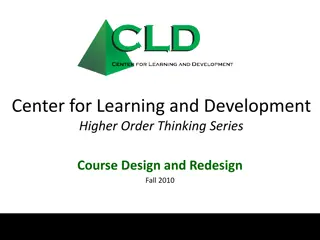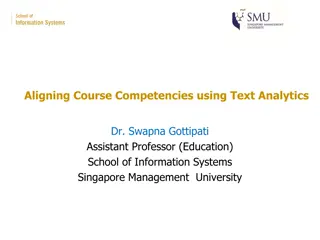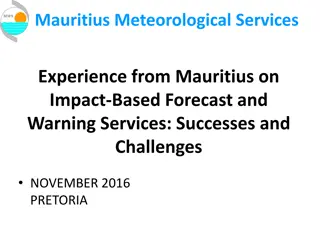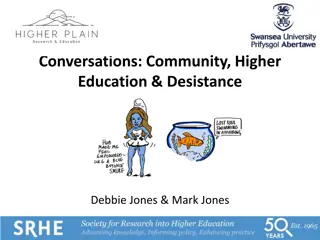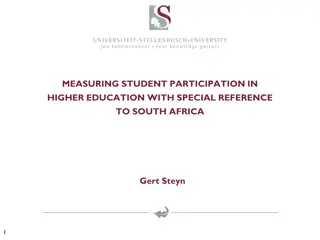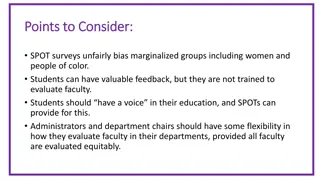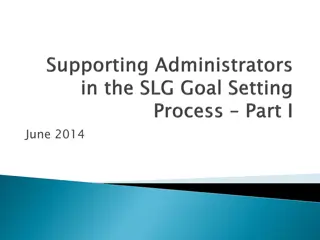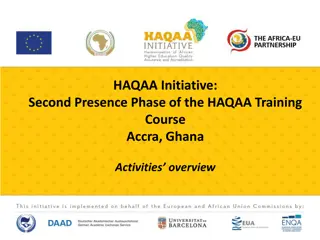Challenges and Successes of Student Course Evaluations in Higher Education
Explores the evolving landscape of student course evaluations in higher education, questioning the relevance of response rates and delving into alternative evaluation methods such as self, peer, and supervisor assessments. Discusses the impact on tenure and promotion decisions, concerns with response rates, and the shift towards electronic evaluation formats. Highlights student and faculty perspectives on evaluation criteria and areas of interest.
- Higher education
- Student evaluations
- Course assessment
- Response rates
- Alternative evaluation methods
Download Presentation

Please find below an Image/Link to download the presentation.
The content on the website is provided AS IS for your information and personal use only. It may not be sold, licensed, or shared on other websites without obtaining consent from the author. Download presentation by click this link. If you encounter any issues during the download, it is possible that the publisher has removed the file from their server.
E N D
Presentation Transcript
Student (and other) Course Evaluations Response Rates, Relevance and Results Kathleen Norris knorris@plymouth.edu Plymouth State University, NH
Student Course Evaluations are standard in higher education, but what are their best uses? Response rates continue to be used as a measure of their effectiveness, but are response rates as relevant as they were when every instructor handed them out in person at the end of every course? What questions can students actually answer about their courses and instructors? How important should they be in determining eligibility for tenure and promotion? This roundtable session will explore the challenges and successes we ve had in the construction and use of student course evaluations, and raise questions about the use of other forms of course evaluation (self, peer, supervisor, instructional designer) in place of, or in addition to, student course evaluations.
Student Evaluations Standard in Higher Education Used for Tenure and Promotion Electronic versions are now common Questions about Course Evaluation design: Student ability to answer some questions Importance of Response Rates as a measure of success in an online survey Validity of using them heavily for T&P
Concern with Response Rates Dominates Course Evaluation Task Force Drop in Response Rates after moving to an online evaluation format Survey of areas of evaluation interests for students, faculty, department chairs, deans
Survey Results Students want to comment on: Instructor s engagement with, and delivery and assessment of, course content Instructors relationships with students: were they professional, accessible, caring Value of the course content, texts, assignments
Survey Results Faculty want students to tell them what works, and doesn t work, in a course about course alignment with syllabus and curriculum student growth/understanding about their communication with students: quality, timeliness
Survey Results Department Chairs, Deans, Admins want students to provide information about the effectiveness of the instructor to help them with course assignment, tenure and promotion decisions potential need to update the curriculum, value of certain courses changing interests of students demand for certain courses, types of activities
Redesign Evaluations? Clear direction from students about what information they want to provide If evaluations asked students questions they could, and want to, answer, might response rates go up? Task Force designed Feedback Frenzy and pushed out various encouragements to faculty to try to increase response rates, (but did not revise the survey based on student feedback) Response Rates remain the goal!
Should we be talking about: Preparing higher education instructors and professors to teach (teacher training)? Preparing department chairs, deans, admins to coach, support, teaching (teacher development and evaluation training)? Online survey standards for response rates, online survey development? Paradigm shift in thinking about the ability of students to evaluate teaching, and use of Student Evaluations in instructor evaluation?
Final Thoughts See selected list of resources on Course Evaluation in Higher Education. The use of student course evaluations continues to be relevant in the assessment of higher education courses. However, with the addition of online and hybrid courses, and online evaluations, we need to examine this practice and the paradigms that drive it, to ensure that the evaluations are meaningful. Thank you for participating in this discussion!
